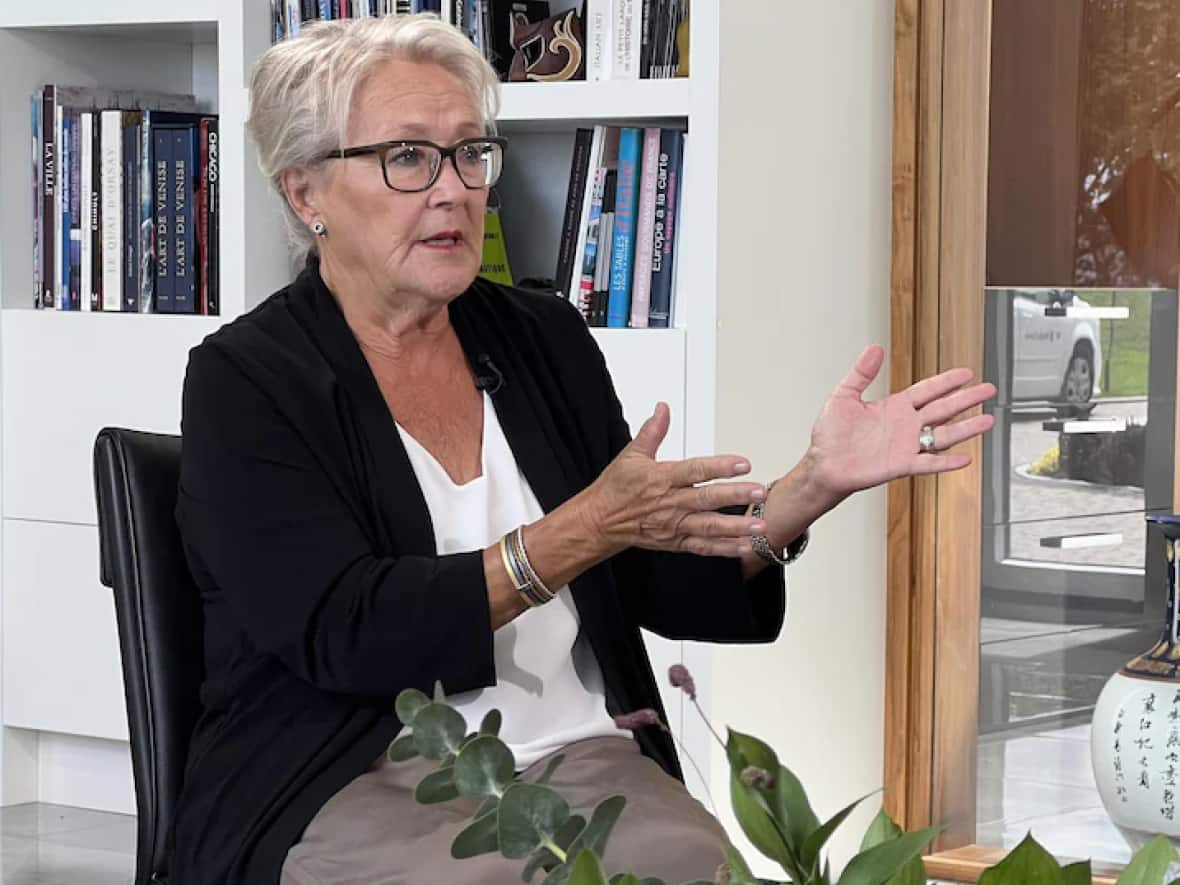Pauline Marois says shooting at Metropolis was a 'political attack'

Former Quebec Premier Pauline Marois says she regrets not calling the shooting that targeted her 10 years ago a political attack.
"I did not want to talk about a political attack for a certain reason," she said in an interview with Radio-Canada's Coulisses du pouvoir, a Canadian politics talk show.
"[The shooter] was an anglophone who was against sovereignists. He said it in the comments he made and I did not want to exacerbate my relationship with the Anglo-Quebec community."
On Sept. 4, 2012, Richard Henry Bain attempted to burst into the Metropolis Theater in Montreal to attack the Parti Québécois leader and her supporters.
The shooting left one person dead and seriously injured another. It also disrupted a festive evening marking the election of Quebec's first female premier and the Parti Québécois's return to power.

Marois says she believes that if a sovereignist had attacked a member of a federalist party, the incident would have elicited a different reaction.
"Imagine if it had happened to another political party, a more federalist one … [if] a sovereignist had attacked a head of government," she said. "It would have made headlines. It would have lasted days and days."
Marois says that minimizing the shooting at the Metropolis prevented her party from benefiting from sympathy they might have expected from the population.
Current campaign
Asked about the Quebec election campaign, Marois said the "old parties" are having a hard time.
She says Quebecers are familiar with the PQ's and the Liberals' main stances and voters might allow themselves to be swayed by more populist parties that lack vision and offer short-term solutions.
Marois believes that the more experienced parties must offer projects that better meet the needs of citizens.
Coalition Avenir Québec Leader François Legault says more candidates in this election campaign fear for their safety, compared with previous years.
"Threats continued after the incident with Marois," he said. "Just look at my Facebook within the last two years, you'll see that some interactions are very violent."
He added that police sometimes need to look into the people leaving comments on his social media.
Two people have been arrested in Quebec in recent days for alleged threats against candidates.
Last week, Legault called on provincial police to step up their response to the threats. On Friday, the Sûreté du Québec announced a 24/7 emergency phone line available to candidates all of major parties.
He says he also hopes to see agreement from Twitter and Facebook to delete anonymous accounts making threats.
"It's a problem. It's not easy to find solutions. That's why I'm saying we have to be open to different suggestions," he said.


